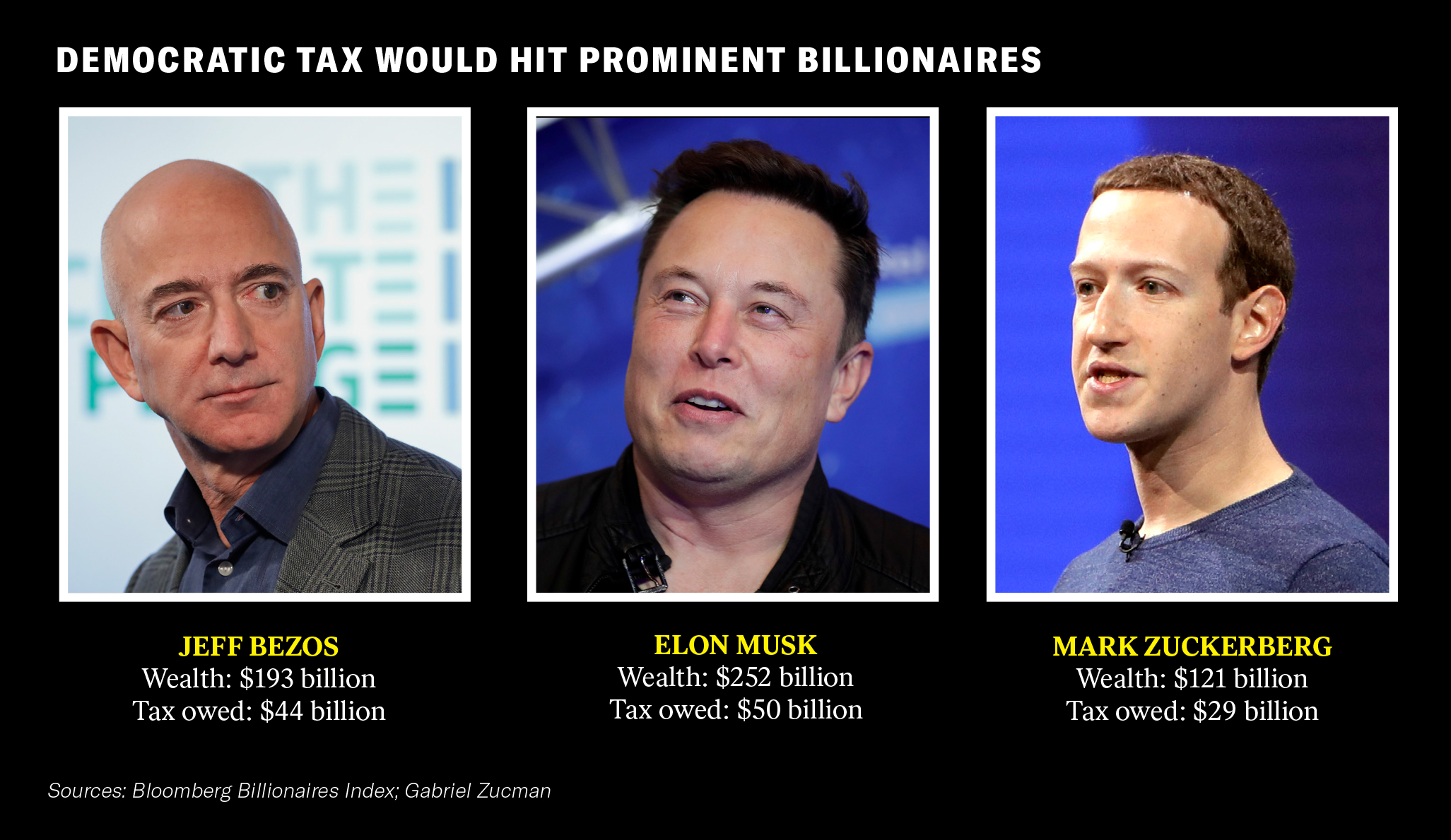A Democratic proposal to tax the wealth of billionaires might have funded part of the party’s massive spending legislation — if all Democrats had lined up behind it.
The proposal from Senate Finance Chairman Ron Wyden would have targeted the assets of America’s ultrawealthy through a structure that some experts warn may be unconstitutional.
It took a hit on Wednesday when centrist Democratic Sen. Joe Manchin described the idea as divisive; Democrats would have needed his support and that of Sen. Kyrsten Sinema to include it in their bill. Sinema has expressed opposition to other proposed tax hikes, such as a significant increase to the corporate tax rate.
DEMOCRATS BILLIONAIRES TAX ON THE ROCKS JUST HOURS AFTER IT WAS UNVEILED
Some Democrats still hope, if agreed to, the proposal could raise hundreds of billions of dollars in revenue, although others signaled that the proposal might not make it into the final legislative product.
The back-and-forth over Wyden’s idea is just the latest battle over how to pay for a bill Democrats insist won’t add to the deficit despite its massive price tag.
A number of liberal priorities, including free community college and a Medicare expansion, are not likely to make the final cut.
The tax proposal would have affected about 700 taxpayers because it was structured to hit only the highest-earning people. These include the likes of tech moguls Elon Musk, Jeff Bezos, and Mark Zuckerberg.
Anyone with a net worth of over $1 billion or who brings in at least $100 million in revenue over three consecutive years would face the tax.
Those subject would have had to pay taxes on their unrealized capital gains, or the increase in value of their traded assets, such as stocks.
DEMOCRATS UNVEIL PLAN TO SOAK MUSK, BEZOS, AND ZUCKERBERG TO PAY FOR BIDEN BILL

Under current law, people don’t owe taxes on their stocks until they sell them.
The unrealized capital gains would be taxed at the long-term capital gains rate of 20%.
Other forms of investment held by the superwealthy, such as real estate, wouldn’t face the same tax rules under Wyden’s proposal.
If a person holding stock or other assets that qualifies for the tax dies and attempts to pass it on to a family member, the asset would have been taxed as if it were sold.
The question of how to pay for the bill has emerged as one of the most contentious sticking points in Democratic negotiations that have dragged on for weeks.
President Joe Biden initially proposed raising the corporate tax rate to 28% from 21% in order to fund the bill, but centrist Democrats wanted a less aggressive increase levied on major companies at a time when the economy is attempting to claw back from its pandemic lows.
Manchin expressed concerns that the Wyden proposal would inhibit investments that grow the economy and create jobs, echoing fears shared by Republicans when the proposal was announced.
CLICK HERE TO READ MORE FROM THE WASHINGTON EXAMINER
Others expressed fears that the proposal would be declared unconstitutional.
The 16th Amendment grants Congress the power to levy taxes on income, but it is unclear if courts would consider unsold assets income if the new structure was tested in court.

